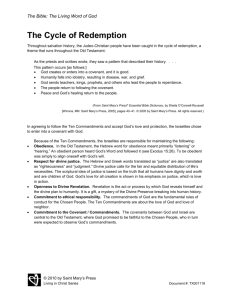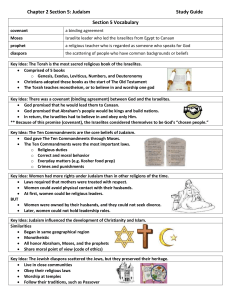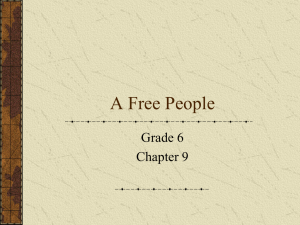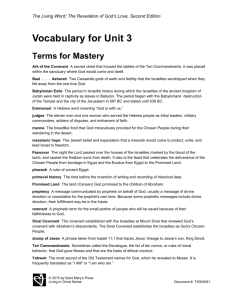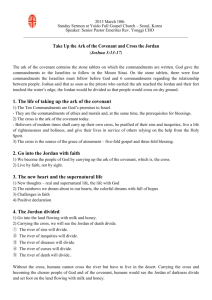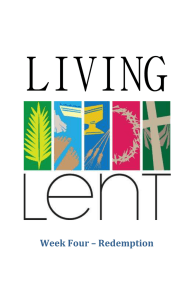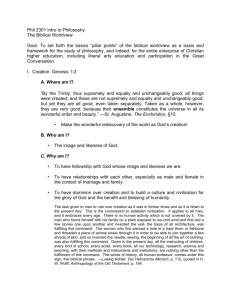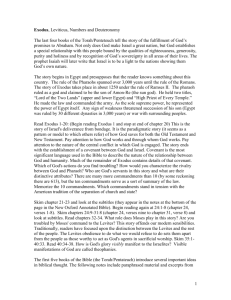The Cycle of Redemption
advertisement
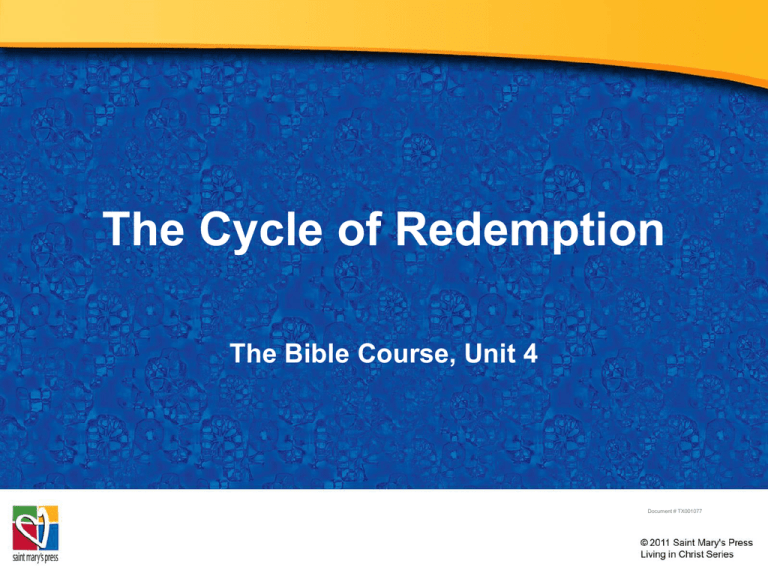
The Cycle of Redemption The Bible Course, Unit 4 Document # TX001077 Redemption and Repentance • Throughout salvation history, the Judeo-Christian people have been caught in the cycle of redemption. • The word redemption comes from the Latin redemptio—meaning “a buying back.” • In the Old Testament, repentance refers to Yahweh’s deliverance of Israel. • Repentance is vital in the cycle of redemption. • Repentance is from the Latin poenitire—meaning “to make sorry.” God creates or enters into a covenant, and it is good. Peace and God’s healing return to the people. The people return to following the Covenant. Humanity falls into idolatry, resulting in disease, war, and grief. God sends teachers, kings, prophets, and others who lead the people to repentance. Israelites’ Covenantal Responsibilities – Obedience: An obedient person hears God’s Word and follows it. To be obedient is simply to align oneself with God’s will. – Respect for Divine Justice: Divine justice calls for the fair and equitable distribution of life’s necessities. – Openness to Divine Revelation: Revelation is the act or process by which God reveals himself and the divine plan to humanity. Image in public domain • Because of the Ten Commandments, the Israelites are responsible for maintaining the following: Israelites’ Covenantal Responsibilities – Commitment to Ethical Responsibility: The commandments of God are the fundamental rules of conduct for the Chosen People. – Commitment to the Covenant and Commandments: The covenants between God and Israel are central to the Old Testament, where God promises to be faithful to the Chosen People, who in turn are expected to observe God’s commandments. Image in public domain • Because of the Ten Commandments, the Israelites are responsible for maintaining the following:
